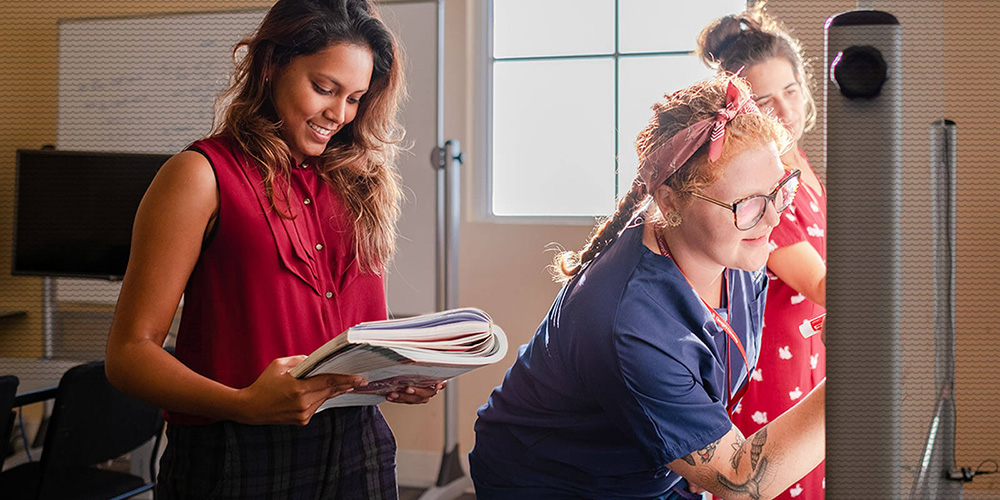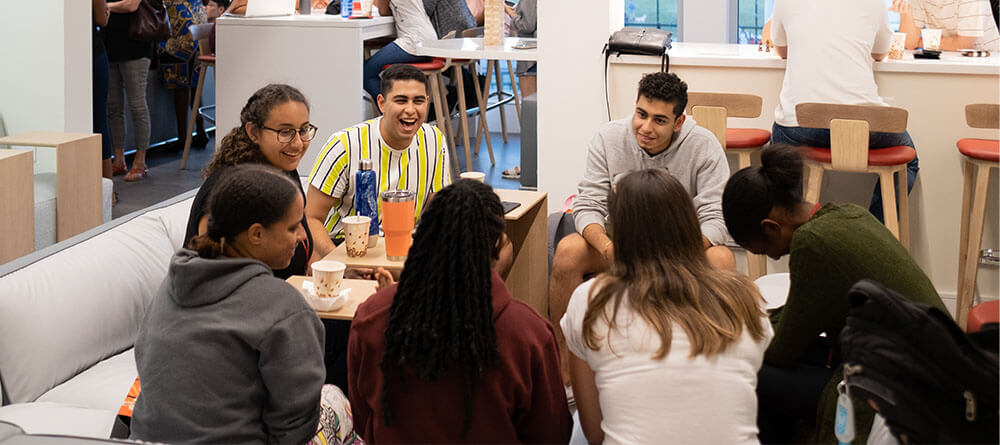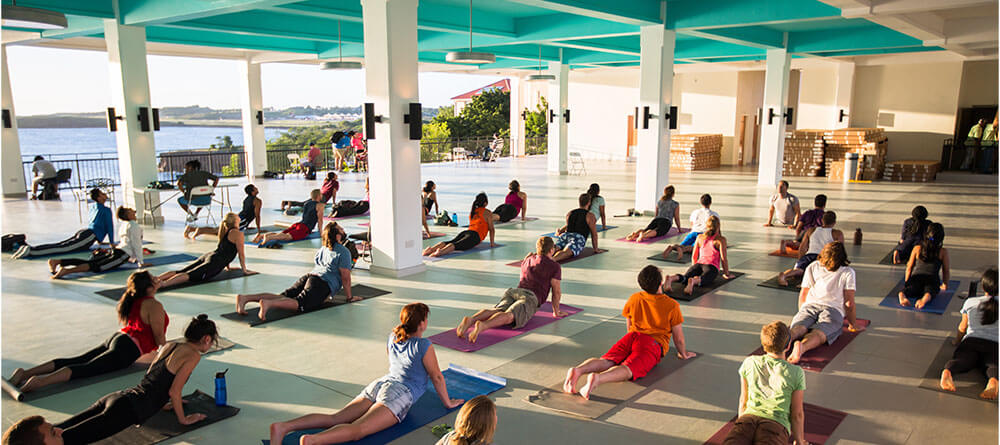Many medical school hopefuls spend years thinking about what the experience will be like before they even begin working on applications. As a pre-med student yourself, you’ve probably wondered what it’s like to attend lectures, participate in labs, complete clinical rotations, and more.
Even if you’ve done your share of research to prepare for the road ahead, there’s only so much you can know without actually going through your first term. To help give you a better idea of what you can expect, we spoke to some students from the St. George’s University (SGU) School of Medicine. See if their insight can help dispel some of the mystery surrounding your first year of medical school.
What is medical school like? 5 things you’ll discover in your first year
Once you start med school, your typical day-to-day experiences will evolve as you learn and grow as a budding physician. In fact, there are a number of changes first-year medical students go through that they don’t necessarily expect. SGU students report experiencing the following.
1. You’ll become a more intentional student
One of the most challenging things about medical school is ensuring you’re able to absorb the extensive amount of material you’ll be expected to learn. The thought itself can be intimidating, but most students find they’re able to adjust in a way that allows them to excel beyond what they thought was possible.
SGU student Hannah Terefe was quick to discover specific tactics that worked well for her. She found, for example, that reviewing content numerous times was essential to her success. “Once I figured out repetition would improve my long-term memory, I didn’t have to spend as much time reviewing for cumulative exams,” she explains.
Terefe isn’t the only one who swears by repetition as a study technique. David Townsend, SGU student and president of the SGU Student Government Association (SGA), is also a proponent of spaced repetition. He learned that he absorbed material best by pre-reading before class, attending the lecture, and then finishing up by post-reading the material.
In addition to increasing the number of times he reviews the course material, Townsend also discovered he was most effective when he woke up early and when he intentionally limited the total number of resources he used.
“Once you find something that works, stick with it.”
“Once you find something that works, stick with it,” he advises. “Don’t change, because most of these resources have the same information, so most of the differences are just in how it’s delivered to you.”
Once you discover effective ways to study in medical school, you’re likely to find the course material much less overwhelming.
2. You’ll discover what you’re capable of
Medical school will probably be one of the most hectic times in your life. On top of attending lectures and labs, you’ll also be expected to study for and take important licensing exams, go through the residency application process, and make time for other personal or family obligations.
The thought of juggling so many responsibilities at once may sound impossible, but Townsend notes that it’s absolutely feasible—and you’ll likely surprise yourself with what you’re capable of. “If you structure and schedule your time in a way that allows you to be efficient, you can do so much more than what you initially thought,” he says.
“Something I realized in my first semester is that SGU will give you the resources you need, and what you do with that is up to you.”
Terefe feels similarly, noting that as long as you’re equipped with the right resources, succeeding in medical school is completely up to you. It takes hard work and determination to perform well, and it’s something you need to actively choose as a med student.
“Something I realized in my first semester is that SGU will give you the resources you need, and what you do with that is up to you,” she explains.
3. You’ll learn to think like a working physician
Townsend had a career before starting medical school, so he was already accustomed to working a full-time job. But he took his professional mindset even further during his first term in medical school. While he’d never considered himself to be a schedule-savvy person in the past, Townsend found himself thinking several steps ahead and planning everything around his top priorities as a first-year medical student.
As you journey through your Doctor of Medicine (MD) program, you may even find that you start to feel and think like a physician during particular experiences, such as putting on your scrubs for the first time. Terefe notes that this feeling set in for her during the first time she used her stethoscope when working with a standardized patient.
“Using my stethoscope, I instantly felt this pressure to do my future patients right by working hard every day so that I can be my best for them,” she reflects. The thought of transitioning from med student to resident may seem like a big jump, but SGU students have found that the medical school process adequately equips MD graduates to tackle the process with confidence.
4. You’ll recognize the importance of self-care
Once your first year of medical school begins, it won’t take long to discover that reserving time to take care of yourself is essential. “I realized the utmost importance of self-care across all facets—mental, physical, and spiritual,” Townsend notes. Putting yourself last, he elaborates, becomes a disservice to your loved ones and your future patients. It can be difficult to adequately care for someone else if you haven’t tended to your own needs.
“I realized the utmost importance of self-care across all facets—mental, physical, and spiritual.”
Even practicing small ways of being kind to yourself can make a sizable difference in how you feel as you progress through your medical training. Terefe learned that something as simple as a daily smoothie routine made a remarkable difference in her overall outlook.
“It became my treat for pushing through and gave me something to look forward to after lectures,” she recalls. Whether it’s a satisfying smoothie, a much-needed nap, or a calming yoga session, finding small ways to relax and treat yourself during medical school can help keep you refreshed and motivated.
5. You’ll make lifelong friends
You’re going to medical school to receive the training you’ll need to become a successful physician. But many medical practitioners will tell you that the bonds they formed during their MD programs have flourished into lifelong friendships. When you’re all working toward similar goals, it’s easy to make lasting connections with other classmates.
“Even being a bit of an older student, I have friends of all ages. I found that to be easy at SGU,” Townsend says, who, in addition to completing his studies and serving as SGA president, maintains responsibilities as a husband and father.
You might even be surprised to find out that, with the right group of friends, medical school can start to feel like a team effort. “At SGU, I’m not competing with my peers,” Terefe says. “We’re working together collaboratively.”
Embrace your first year of medical school
The prospect of starting medical school can be exciting, intimidating, exhilarating, and anxiety-inducing all at once. But as current and former medical students will tell you, future physicians are quick to adapt and often surprise themselves with what they’re capable of.
The skills you’ll develop during the first year of medical school will prove useful throughout your entire medical career. Finding an effective approach to absorbing course material can make all the difference. Learn more about how you can develop a system that works for you in our article “Doctors Offer Insider Tips on How to Study in Medical School.”
*This article was originally published in 2019. It has since been updated.



